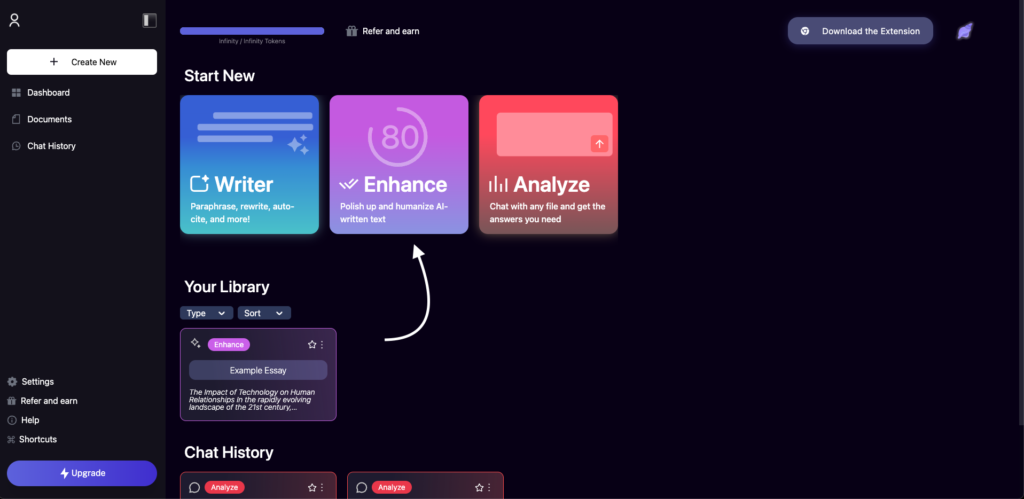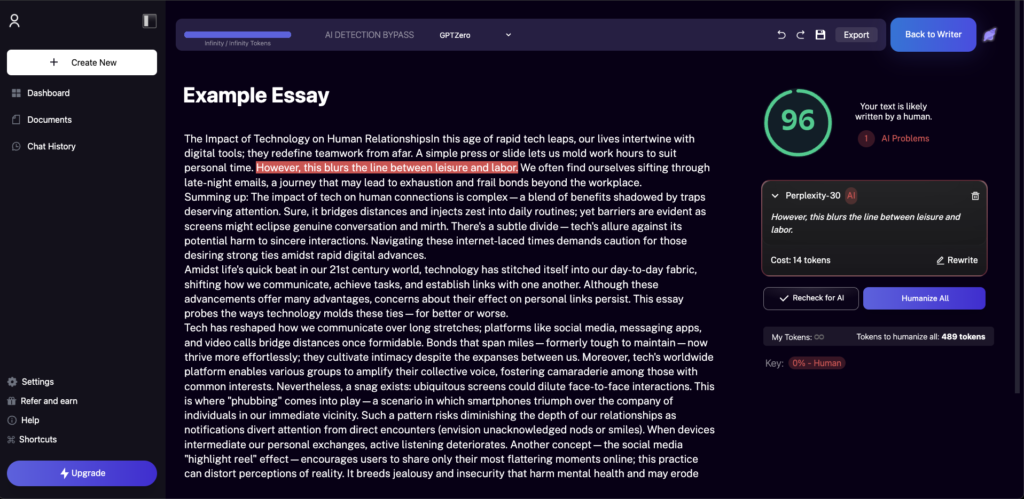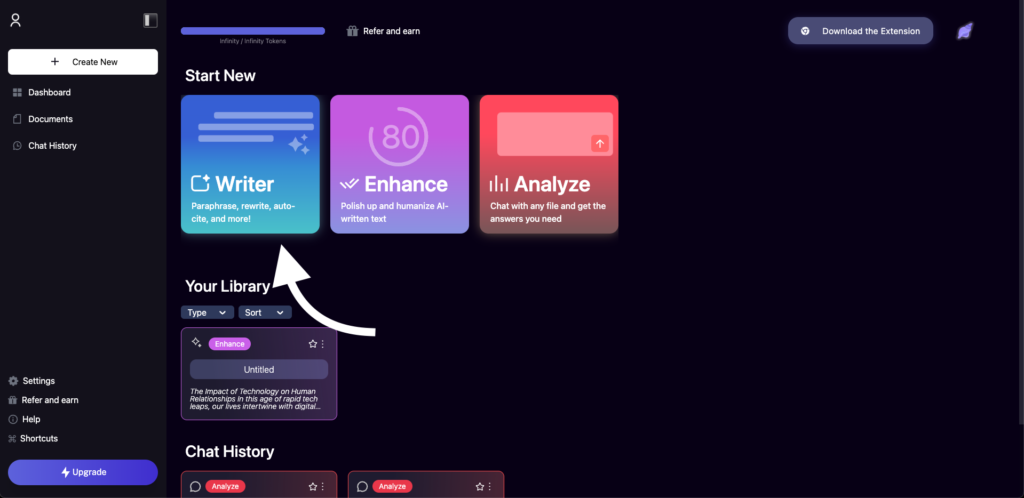Are you feeling overwhelmed by the prospect of writing a college essay? Don’t worry, you’re not alone. Many students find the task of crafting a compelling and coherent college essay to be a daunting one. But fear not! With the right approach and a well-structured college essay outline, you can conquer this challenge and showcase your unique voice and experiences to admissions officers.
In this guide, we will explore the importance of having a strong college essay outline and how it can serve as a roadmap to guide you through the writing process. So, if you’re ready to take your college essay to the next level and leave a lasting impression on admissions officers, read on.
A college essay outline is like a blueprint for your essay. It helps you organize your thoughts, ensure a logical flow of ideas, and maintain a clear and concise essay format. With a well-planned outline, you can avoid the common pitfalls of rambling and losing focus, which can weaken the impact of your essay. By following a structured outline, you can effectively communicate your message, highlight your strengths, and showcase your unique perspective.
So, whether you’re just starting to brainstorm ideas or you’re in the final stages of polishing your essay, having a college essay outline can be the key to unlocking your full writing potential. Let’s dive in and discover how you can create a powerful outline that will make your college essay shine.
What Is A College Essay Outline?

The college essay outline is a crucial step in the writing process, as it serves as a roadmap for creating a well-structured and organized essay. It helps to guide the writer in developing their ideas, ensuring that they are presented in a logical and coherent manner.
1. Clarifies the Purpose
The college essay outline helps to clarify the purpose of the essay, allowing the writer to stay focused on the main objective. By identifying the main topic and central thesis statement, the outline sets the stage for a clear and concise essay.
2. Organizes Thoughts and Ideas
An outline provides a structured framework for organizing thoughts and ideas. It allows the writer to see the overall structure of their essay and how different sections or paragraphs relate to each other. This organization prevents the essay from becoming disjointed or confusing, ensuring that the reader can easily follow the writer’s train of thought.
3. Saves Time and Effort
By outlining the essay, the writer can save time and effort in the long run. The outline acts as a guide, eliminating the need to continually backtrack or revise the essay’s structure. It helps to streamline the writing process, making it more efficient and productive.
4. Ensures a Comprehensive Coverage
A well-constructed outline ensures that all important points and arguments are included in the essay. It helps the writer to analyze their thoughts and identify any gaps or missing information. By providing a comprehensive overview of the essay’s content, the outline ensures that nothing important is overlooked.
5. Facilitates Smooth Transitions
Transitions are crucial for maintaining the flow and coherence of an essay. The outline allows the writer to plan and structure these transitions, ensuring that each paragraph smoothly connects to the next. This makes the essay more engaging and easier to read.
6. Supports Effective Editing and Revision
An outline serves as a valuable tool for editing and revising the essay. It allows the writer to evaluate the overall structure and organization of their work, identifying areas that may need improvement. By having a clear outline, the writer can more easily spot weaknesses or inconsistencies and make the necessary adjustments.
7. Provides a Sense of Confidence:
Having a well-designed outline gives the writer a sense of confidence and direction. It serves as a roadmap, providing a clear path to follow throughout the writing process. This confidence translates into stronger writing and a more compelling essay.
Related Reading
- How To Write An Essay
- Types Of Essays
- Essay Structure
- Words To Start A Paragraph
- How To Write An Analytical Essay
- How To Start Off An Essay
- What Makes A Good Thesis Statement
- How To Write A 5 Paragraph Essay
- How To Write A Personal Essay
- Argumentative Essay Topics
- What Is an Expository Essay
- How to Write a Conclusion for an Argumentative Essay
The Importance of Having An Essay Outline

When it comes to writing a college essay, having a well-structured outline is crucial. An outline serves as a roadmap for your essay, helping you organize your thoughts and ideas in a logical and coherent manner. It provides a sense of direction and clarity, making the writing process much smoother and more efficient.
1. Planning and Organizing Ideas
Creating an outline allows you to brainstorm and plan out your ideas before diving into the actual writing. It helps you identify the main points and supporting details that you want to include in your essay. By organizing your thoughts in a structured manner, you can ensure that your essay flows smoothly and effectively communicates your main message.
2. Creating a Logical Flow
An outline helps you establish a logical flow of ideas within your essay. It enables you to arrange your thoughts in a sequential order, ensuring that each paragraph or section builds upon the previous one. This logical progression makes your essay more coherent and easier for the reader to follow. It also helps you avoid repetition or unnecessary tangents that can detract from the overall quality of your work.
3. Saving Time and Effort
By having a clear outline, you can save a significant amount of time and effort during the writing process. With a roadmap already in place, you can focus on expanding and elaborating on the ideas presented in your outline, rather than struggling to come up with new ideas or trying to organize your thoughts on the spot. This allows you to write more efficiently and effectively, resulting in a higher quality essay in less time.
4. Ensuring Comprehensive Coverage
An outline helps ensure that you address all the key points and arguments you want to make in your essay. It serves as a checklist, ensuring that you don’t leave out any important information or overlook any crucial aspects of your topic. By referring to your outline throughout the writing process, you can ensure that your essay is comprehensive and well-rounded, providing a thorough analysis of the subject matter.
5. Enhancing Clarity and Focus
An outline provides clarity and focus to your writing. It helps you stay on track and avoid going off-topic or including irrelevant information. By sticking to the main points outlined in your essay, you can maintain a clear and concise writing style, making it easier for the reader to follow and understand your arguments.
Complete Guide On Creating A College Essay Outline

An effective college essay outline serves as a roadmap for your writing journey. It not only helps you organize your thoughts and ideas but also ensures that your essay flows smoothly from one point to another. In this guide, we will explore the main components of a college essay outline and provide you with a step-by-step process to create an outline that will impress your readers.
1. Understand the Essay Prompt
Before diving into the outline, it is crucial to thoroughly understand the essay prompt. Read it carefully and identify the key themes, requirements, and objectives. This will help you stay focused and ensure that your essay addresses the prompt effectively.
2. Brainstorm Ideas
Next, take some time to brainstorm ideas and gather relevant information. Consider your personal experiences, academic achievements, extracurricular activities, and any other aspects of your life that could be compelling to include in your essay. Jot down these ideas, keywords, and phrases to refer to later.
3. Start with an Engaging Introduction
The introduction sets the tone for your essay and captures the reader’s attention. Begin with a captivating hook that relates to your topic. This could be a thought-provoking question, a surprising statistic, or a compelling anecdote. Introduce your main thesis statement, which encapsulates the main argument or message of your essay.
4. Develop Body Paragraphs
The body paragraphs form the meat of your essay and provide in-depth analysis and support for your thesis statement. Each body paragraph should focus on a single main idea or topic. Start each paragraph with a topic sentence that clearly states the main point. Use the following paragraph structure to guide your outline:
a. Topic Sentence
Clearly state the main point of the paragraph.
b. Supporting Evidence
Provide specific examples, facts, or anecdotes to support your main point.
c. Analysis
Analyze the evidence and explain how it supports your thesis statement.
d. Transition
Use transitional words or phrases to smoothly connect one paragraph to the next.
5. Address Counterarguments
To make your essay more persuasive, consider addressing counter arguments in one of your body paragraphs. Anticipate potential objections to your argument and provide valid reasoning or evidence to refute them. This demonstrates your critical thinking skills and strengthens your overall argument.
6. Include Personal Reflection
To give your essay a personal touch, consider including a paragraph or two of personal reflection. Reflect on the lessons learned, personal growth, or transformative experiences that relate to your essay topic. This will add depth and authenticity to your writing.
7. Craft a Strong Conclusion
While we won’t discuss the conclusion in this guide, it is important to briefly mention its purpose. The conclusion summarizes the main points of your essay and restates your thesis statement. It leaves the reader with a sense of closure and reinforces the significance of your essay’s message.
How To Write A College Essay Outline With Conch’s AI Writer
By following this 7-step guide, you can easily check if your content is detected for plagiarism, and you can paraphrase it with Conch’s AI tool within minutes.
At the end of this guide, you will also find a guide on how to use Conch’s AI Essay Writer, which helps you to efficiently write great essays.
Conch’s plagiarism checker tool also paraphrases your content to bypass all AI writing detector systems, like GPTZero, Originality, Turnitin, and all other AI detection systems. It bypasses AI writing detectors 99% of the time and is trusted by millions of students around the world.
Here is a simple guide on how to use the tool:
Step 1: Login and Navigate To Our App
Step 2: Click Enhance To Analyze Your Content

Once you click Enhance you will be guided to Conch’s Enhance tool 👇

Step 3: Copy Your Essay Into Our Tool

Step 4: Click The ‘Check for AI’ Button In The Top-Right Corner

Step 5: Analyze The Results
Within minutes, our Enhance tool will analyze your content to determine it’s plagiarism score.

Step 6: Click ‘Humanize All’ To Automatically Paraphrase All of Your Content Within Minutes
This will paraphrase all of your content within minutes to save you from being questioned for plagiarism. It will also make your content AI-writing detector proof. You won’t have to worry about being detected by plagiarism checkers, nor will you have to worry about AI writing detectors detecting your content.

Before Enhancing The Content:

After Enhancing The Content:

Step 7: Copy or Export Your Content and Submit It With Ease

Bonus Step: Copy Your Content Into Our Writer Tool To Write An Applaudable Essay Within Minutes


Sign up to use our tool for free, today!
Related Reading
- Argumentative Essay
- Expository Essay
- Essay Outline
- Narrative Essay
- Persuasive Essay
- Transition Sentences
- Synthesis Essay
- Rhetorical Analysis Essay
- Descriptive Essay
- Critical Analysis Essay
- Memoir Essay
- First Person Essay
- Formula For A Thesis Statement
- How to Write a Conclusion for an Essay
- College Essay Format
- Narrative Essay Topics
- Unique Argumentative Essay Topics
- Expository Essay Topics
- Argumentative Essay Transition Words
- Good Persuasive Essay Topics
- How to Write a Good Hook for an Essay
- Persuasive Essay Topics College
- College Argumentative Essay Topics
Different Types of Outlines Used for College Essays

Before diving into the different types of outlines that can be used for college essays, let’s first understand the importance of having a well-structured outline. Just as a solid foundation is essential for building a sturdy house, an outline serves as the foundation for your essay. A well-organized outline not only helps you stay focused and on track, but it also ensures that your thoughts flow logically and coherently. So, let’s explore the various types of outlines that can elevate your college essay to new heights.
1. The Traditional Outline Method
The traditional outline method is a classic approach that involves breaking your essay down into clear and concise sections. Start with a captivating introduction that grabs the reader’s attention, followed by several body paragraphs that each discuss a different supporting point or argument. Finally, conclude your essay with a strong closing statement that leaves a lasting impression on your audience. This method provides a linear structure that allows you to present your ideas in a logical and systematic manner.
2. The Mind Mapping Method
For those who prefer a more visual approach, the mind mapping method can be an effective way to outline your college essay. Instead of using a traditional hierarchical structure, this method encourages you to create a diagram that depicts the relationships between different ideas and concepts. Start by writing your main topic at the center of the page, then branch out with subtopics and supporting details. This method promotes creativity, as it allows you to see the connections between various ideas and identify potential gaps in your argument.
3. The Reverse Outline Method
If you’re someone who likes to jump right into writing without a clear plan, the reverse outline method can be a game-changer. After you’ve finished your initial draft, take some time to read through it carefully. As you go, create an outline by summarizing each paragraph or section in a few concise sentences. This method helps you identify any flaws in your essay’s structure and ensures that your arguments are presented in a logical order. It’s a great way to fine-tune your essay and ensure that it flows seamlessly.
4. The Sentence Outline Method
The sentence outline method is perfect for those who prefer a detailed and comprehensive structure. With this method, you create a complete outline by writing full sentences for each section of your essay. This approach allows you to flesh out your ideas and ensure that your arguments are well-supported with evidence and examples. While it may take more time to create a sentence outline, it provides a solid foundation for your essay and helps you stay focused throughout the writing process.
Effective Strategies for Brainstorming Ideas for The Essay Outline

When it comes to writing a college essay, one of the first steps is to brainstorm and generate ideas for your outline. This process can be both exciting and overwhelming, as you want to ensure that your essay is engaging, well-structured, and effectively conveys your message. Here are some effective strategies to help you brainstorm and generate ideas for your essay outline:
1. Freewriting
Set aside some time to write freely without any constraints or judgment. Start by jotting down any ideas, thoughts, or keywords that come to mind related to your essay topic. Let your thoughts flow naturally and don’t worry about grammar or structure. The goal is to generate as many ideas as possible, even if they seem unrelated or insignificant at first. You can then review your freewriting and identify key points to include in your essay outline.
2. Mind Mapping
Mind mapping is a visual brainstorming technique that allows you to organize your thoughts and ideas in a hierarchical and interconnected manner. Start by writing your main essay topic or question in the center of a blank page and then branch out with related subtopics or supporting ideas. You can use arrows, colors, and symbols to make connections between different concepts. Mind mapping helps you see the big picture and identify the main themes of your essay.
3. Listing
Create a list of all the ideas, experiences, examples, or arguments you want to include in your essay. This strategy allows you to quickly jot down ideas without worrying about their order or structure. Once you have a comprehensive list, you can then prioritize and categorize the items based on their relevance and importance. This will help you develop a logical and well-organized essay outline.
4. Research and Reading
Conducting research and reading relevant articles, books, or academic papers can provide you with valuable insights and inspiration for your essay outline. Take notes on key points, quotes, or statistics that resonate with your topic and can support your arguments. This will not only strengthen your essay but also demonstrate your knowledge and understanding of the subject.
5. Asking Questions
Pose thought-provoking questions related to your essay topic and use them as a starting point for brainstorming. For example, if your essay is about the impact of social media on society, you can ask questions like “How has social media changed the way people communicate?” or “What are the positive and negative effects of social media on relationships?” Answering these questions will help you generate ideas and develop a structured outline.
It is important to note that brainstorming and generating ideas is just the first step. Once you have a list of ideas, you can organize and prioritize them to create a clear and effective essay outline. By following these strategies, you will be well-prepared to write a compelling and impactful college essay.
Conch’s Free AI Essay Writer
Conch AI is the original AI detection bypass tool. At Conch, we guarantee that there’s a 99.99% chance that you won’t get caught after using our tool. If you use Conch AI to write your essays, you will be undetected by algorithms like GPTZero and TurnItIn. With Conch, you can write your essays 10x faster, AI detection-free. Our tool helps you add citations, rewrite content so it’s undetectable by AI, and much more, all to protect students’ time and let them focus on learning the content!
So, Chegg users, high school and college students, and anyone writing papers, use Conch to make your student life easier and bypass AI detection tools with ease. With over +1 million users to date and growing, Conch AI is a trusted and reliable resource. Sign up and use Conch’s AI essay writer for free today!
Common Mistakes To Avoid When Creating A College Essay Outline

Creating a college essay outline is a crucial step in the writing process. It helps you organize your thoughts, structure your ideas, and ensure a coherent and logical flow in your essay. However, there are some common mistakes that many students make when creating their college essay outlines. By being aware of these pitfalls, you can avoid them and create a strong outline that sets the foundation for an impressive essay.
1. Failing to understand the essay prompt
One of the biggest mistakes students make is not fully understanding the essay prompt before creating their outline. It’s essential to carefully read and analyze the prompt to ensure that your outline addresses all the required elements. Take note of any specific questions or instructions provided, and make sure your outline reflects them accurately.
2. Lack of a clear thesis statement
A strong thesis statement is the backbone of any successful essay. Without a clear and concise thesis statement, your outline may lack focus and direction. Ensure that your thesis statement is prominently featured in your outline, as it will guide the development of your main points and arguments.
3. Overcomplicating the structure
Your college essay outline should follow a logical and straightforward structure. Avoid overcomplicating your outline by including unnecessary subsections or elaborate formatting. Stick to a simple and clear outline structure that includes an introduction, body paragraphs, and a conclusion.
4. Neglecting to include supporting evidence
Your outline should include the main points and arguments you plan to make in your essay. However, it’s crucial to back up these points with supporting evidence. Failing to include specific examples, facts, or data in your outline can weaken the strength of your arguments. Make sure to include supporting evidence for each main point in your outline to ensure a persuasive and well-supported essay.
5. Not revising and refining the outline
Creating an outline is not a one-time task; it’s a dynamic process that requires revision and refinement. Many students make the mistake of neglecting to revisit and revise their outline before starting the essay. After completing your initial outline, take the time to review and make necessary adjustments. Ensure that your outline reflects your evolving ideas and arguments as you delve deeper into the topic.
6. Ignoring transitions and coherence
Transitions play a vital role in connecting the different sections of your essay and ensuring a smooth flow of ideas. Unfortunately, many students overlook the importance of transitions when creating their outlines. Incorporate transitional words and phrases into your outline to demonstrate the logical progression of your arguments and ideas.
7. Being too rigid in your outline
While an outline provides a structure for your essay, it’s essential to remain flexible and open to modifications. Many students make the mistake of being too rigid in their outlines, preventing them from exploring new ideas or adjusting their approach as they write. Allow for flexibility in your outline so that you can adapt and refine your essay as needed.
Tips for Revising Your College Essay Outline To Create A Polished Final Essay

When it comes to crafting a compelling college essay, creating an outline is just the first step. To truly stand out and captivate the admissions committee, you must revise and refine your outline until it shines with brilliance. Here are some tips to help you transform your raw thoughts into a polished final essay:
1. Clarify Your Thesis Statement
Your thesis statement is the backbone of your essay, so it’s crucial to refine it until it communicates your main argument with utmost clarity. Ask yourself: Does my thesis capture the essence of my essay? Is it specific, concise, and impactful? Revise it until it becomes a powerful guiding force for your entire essay.
2. Streamline Your Supporting Points
While you may have brainstormed numerous supporting ideas during the outline stage, it’s important to select only the strongest and most relevant ones. Trim away any redundant or weak points that dilute your essay’s impact. Remember, quality over quantity!
3. Organize Your Ideas
A well-organized essay flows effortlessly and guides the reader through a logical progression of ideas. Take a step back and assess the order of your supporting points. Use transition words and phrases to connect your ideas and ensure a smooth transition from one paragraph to another. Consider the most effective structure to best convey your message, be it chronological, cause and effect, or compare and contrast.
4. Fine-Tune Your Language
To create a polished final essay, pay close attention to your language and word choice. Replace any vague or generic terms with vivid and descriptive language. Use action verbs to infuse your writing with energy and engage the reader. Eliminate unnecessary jargon or overly complex language that may confuse or bore your audience. Strive for a balance between sophistication and accessibility.
5. Seek Feedback
No writer is an island, and seeking feedback from others can greatly enhance your essay’s quality. Share your revised outline with trusted peers, mentors, or teachers who can provide constructive criticism. Consider their suggestions and evaluate whether they align with your vision for the essay. Embrace feedback as an opportunity for growth and refinement.
6. Revise, Revise, Revise
Revision is not a one-time task; it’s an ongoing process that requires dedication and persistence. Continuously review and refine your essay, aiming for clarity, coherence, and conciseness. Read your essay aloud to spot any awkward phrasing or grammatical errors. Polish each sentence until it seamlessly weaves into the next, creating a compelling narrative.
Bypass AI Detector Tools For Free With Conch AI’s AI Paraphrasing Tool & AI Essay Writer
Why is an outline essential for your college essay?
An effective outline serves as the blueprint for your college essay, providing structure and organization to your thoughts. It helps you stay focused on your main ideas, ensures a logical flow of information, and saves time during the writing process. With a well-crafted outline, you can present your arguments in a clear and concise manner, leaving a lasting impression on your readers.
The key elements of a compelling college essay outline
a) Introduction
Start your essay with a captivating hook that grabs the reader’s attention. Introduce the main topic and provide background information to set the context. Conclude with a strong thesis statement that states your main argument or purpose.
b) Body paragraphs
Divide your essay into several paragraphs, each focusing on a specific idea or argument. Start each paragraph with a topic sentence that supports your thesis statement. Provide supporting evidence, examples, and analysis to strengthen your arguments. Use transition words to ensure a smooth transition between paragraphs.
c) Conclusion
Summarize your main points and restate your thesis statement. Leave your readers with a thought-provoking closing statement that reinforces the significance of your essay.
How can Conch AI’s AI paraphrasing tool enhance your college essay?
Conch AI’s AI paraphrasing tool is the ultimate solution to bypass AI detection tools like GPTZero and TurnItIn. With a 99.99% guarantee of remaining undetected, ConchAI allows you to write your essays 10 times faster, without the fear of plagiarism detection. Here’s how ConchAI can elevate your college essay:
a) AI detection bypass
ConchAI rewrites your content in a way that is undetectable by AI algorithms, ensuring that your work remains original and authentic.
b) Citations made easy
ConchAI helps you add citations accurately and effortlessly, saving you time and ensuring proper attribution of sources.
c) Faster writing process
With ConchAI, you can write your essays at lightning speed, as it provides suggestions and paraphrases that align with your ideas, making the writing process smoother and more efficient.
d) Protects students’ time
By bypassing AI detection tools, ConchAI allows students to focus on learning and understanding the content, rather than worrying about plagiarism checks.
Join over 1 million satisfied users and try Conch AI for free today!
With over 1 million users to date and growing, Conch AI has revolutionized the way students write their essays. By offering a seamless solution to bypass AI detection tools, ConchAI saves time, protects originality, and enhances the overall learning experience. Don’t let AI algorithms hinder your creativity and productivity. Sign up for ConchAI today and experience the future of essay writing.

Leave a Reply